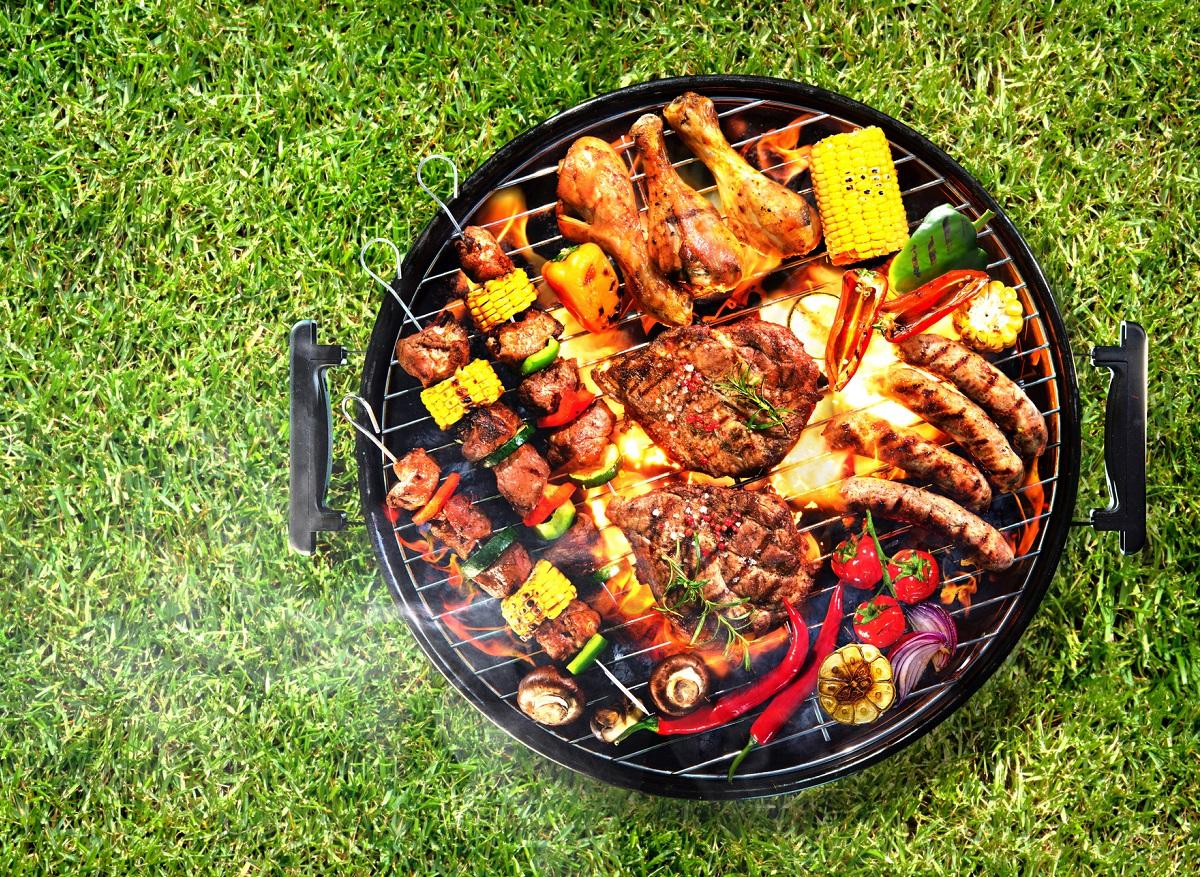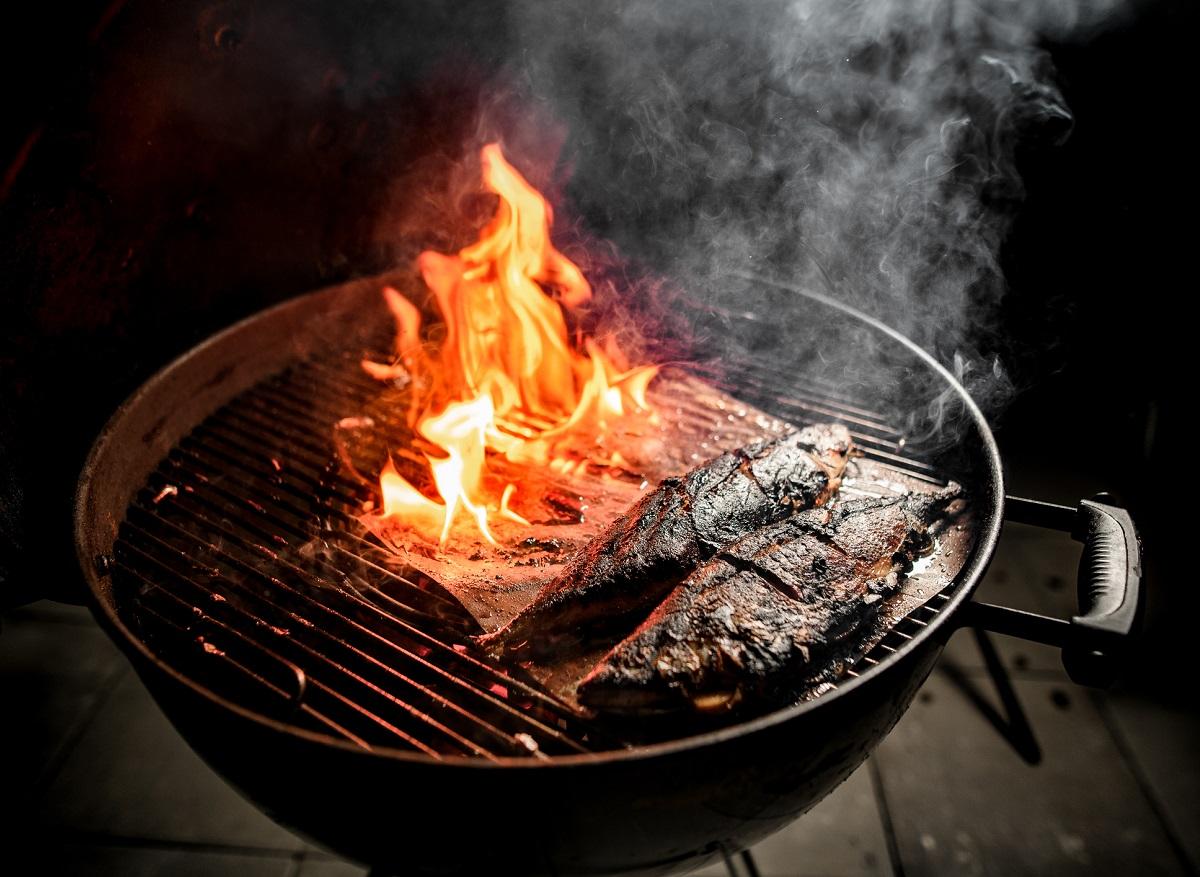
Hygiene is the most important
Wonderful, those long summer evenings, when you can eat outside. There is a good chance that the barbecue will be switched on regularly. Having a nice meal with friends, however, becomes a lot less pleasant when everyone is left with severe diarrhea. According to estimates, more than 10 percent of the Dutch annually contract some form of food poisoning or infection during a barbecue. That is why these tips to prevent stomach and intestinal problems from barbecuing will certainly come in handy.
First of all, most people don’t know that food poisoning and food infection are two different things. With food poisoning, bacteria or fungi produce a toxic substance in your food, which cannot be made harmless by heating. The staph bacteria is an important cause of food poisoning. This bacteria multiplies very quickly at room temperature and is usually spread through poor hygiene. You will get the first symptoms within 8 hours of eating contaminated food. Think of abdominal cramps, diarrhoea, nausea or vomiting. Sometimes food poisoning even causes a gastro-intestinal inflammation. If the symptoms do not subside after 48 hours or if they are accompanied by severe pain, it is wise to contact your doctor.
Prevention is better than cure
A food infection is much more common and is caused by a sickening amount of bacteria, fungi or viruses in the food. The most notorious culprit of a food infection is the salmonella bacteria. This bacterium is found in meat, eggs and milk. The signs of a food infection appear within 8 to 24 hours of eating contaminated food. The symptoms can be quite severe. Think of sudden, severe abdominal cramps, (sometimes bloody) diarrhoea, violent vomiting and sometimes fever. Not pleasant and, moreover, usually easy to prevent through good hygiene and proper food preparation.
It starts with the groceries
- Always buy perishables as late as possible, especially when it’s hot. The butcher or the fishmonger are the last shops you visit. And that also applies to the meat or fish shelf in the supermarket.
- Note the TGT date.
- Use a cooler bag to take the groceries home.
- Go home immediately so that your groceries are not unnecessarily long in the car in the heat.
- Place your groceries directly in the fridge at home. If you use an extra refrigerator in the garage – as is often the case in the summer – check whether it still works, is clean and is set to 4 degrees Celsius.
Good preparation is half the battle
- Remember to wash your hands. Don’t just do this before you start preparing your barbecue, but wash your hands with disinfectant soap every time you touch raw meat or fish.
- You defrost in the fridge, not on the counter. So remove meat or fish from the freezer a day in advance.
- Keep utensils and countertops clean. Use new kitchen tools with each new type of raw meat or fish and also change the (plastic or glass) cutting board. Short of material? Then wash off in between in hot water with soapy water.
- Also make sure you have clean towels, tea towels and especially dishcloths. The dishcloth is usually the biggest source of pathogenic bacteria.
- Always cover your food, so that any flying pests have no chance. Do this after you’ve made it, but also when it’s on the table outside.
- A nicely prepared dish with meat and fish adorns the table, but almost guarantees cross-contamination. It is therefore better to keep the different types of raw meat and fish strictly separated.
- Always place meat and fish at the bottom of the refrigerator, so that any liquid that leaks does not drip onto other products.
- Wash vegetables well and do the same with fruit if it is not peeled.
Hygiene is the most important
Hygiene is perhaps even more important than usual when barbecuing. For example, bacteria, which are always on raw meat, can multiply faster when this meat is left out of the refrigerator for too long. The consequence? A serious infection with diarrhea as the main complaint. Therefore, only remove meat and fish from the refrigerator when it also goes on the barbecue grill and put back what you don’t use immediately. In addition, make sure that plates and cutlery that have come into contact with raw meat do not come into contact with the cooked meat. Other points of interest:
- Do not use the tongs you use to put raw meat and fish on the barbecue to turn the same piece of meat or fish, but use different tools.
- Insert the tongs into the barbecue grill when not in use. The heat kills the bacteria from the raw food.
- Barbecuing is not something to lick your fingers. At least not while preparing the food. So do not lick the marinade from the pieces of raw meat from your fingers. In fact, don’t touch it with your hands at all.
Well done is always better
Meat and fish quickly look tasty on the barbecue, while they are still half raw on the inside. But it is important that they are well-done, because the bacteria can survive in semi-raw meat and cause unpleasant gastrointestinal complaints. Are the pieces of meat very large or thick? Then pre-cook them in the microwave or oven. Then you know for sure that the meat is no longer raw and you limit the risk of complaints to a minimum. Also make sure there is enough light at the barbecue, so that you can see whether meat or fish is really well cooked. Also make sure that your food does not burn. Blackened meat may not cause stomach or intestinal problems, but it does increase the risk of cancer. Do not let the temperature of the coals get too high and do not hang the grid too close to the coals.
Pay attention after eating
Finished eating? Then throw away anything that has been out of the fridge for too long. You can freeze fresh meat or fish that has not been out of the refrigerator. It is best to cook leftover meat or fish that comes out of the freezer on the barbecue. Then let it cool quickly and put it in the fridge. Good for tomorrow!
Sources):
















